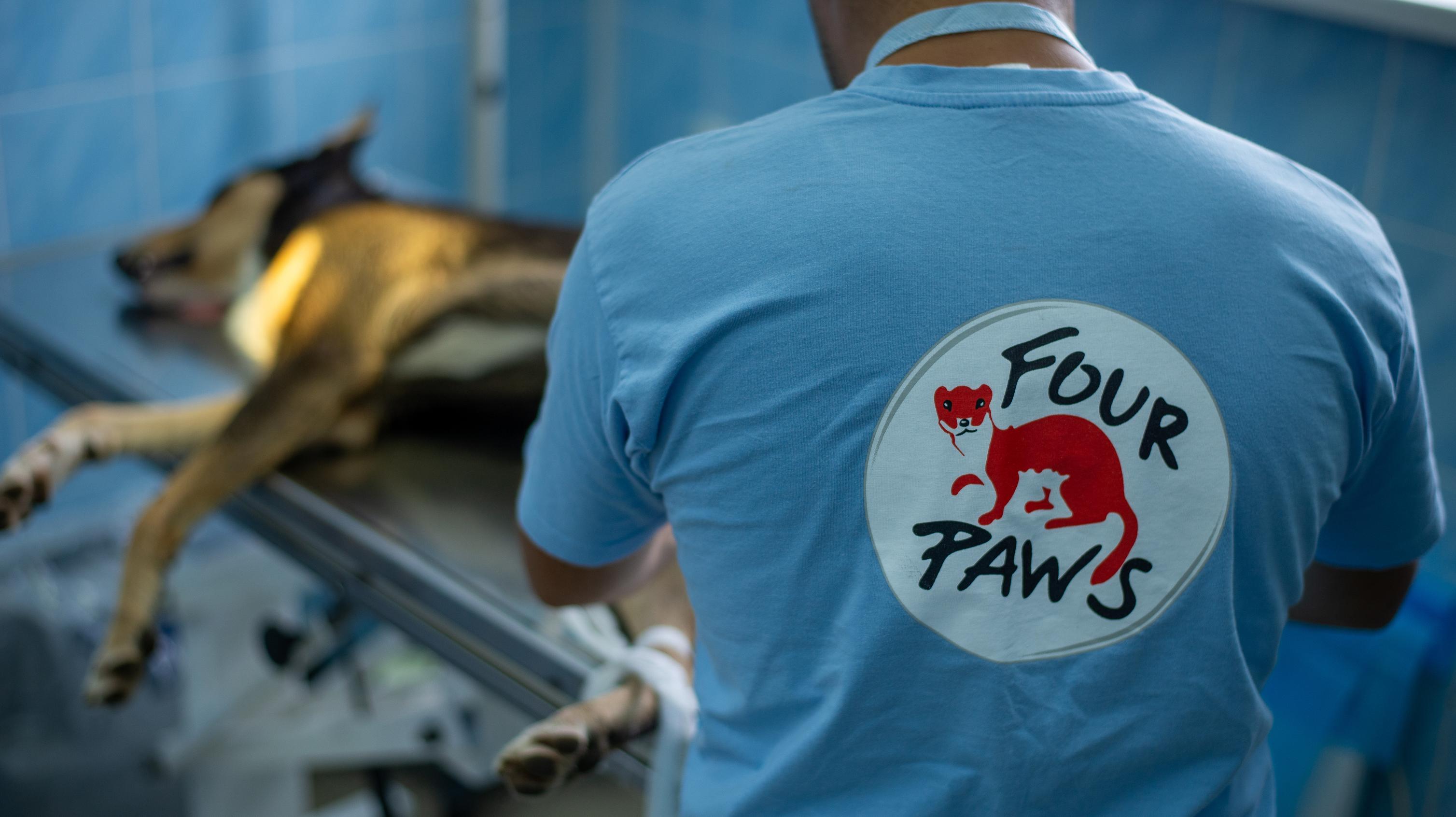
Hope for a Better Tomorrow for strays
Three important projects to ending stray animal suffering in Eastern Europe
With the pandemic exerting a strong grip on our lives in 2020, stray animal care projects have not always been at the forefront of community activities in Eastern Europe last year. Our dedicated local teams throughout Europe and Asia worked hard to feed and support tens of thousands of stray animals since the beginning of the global pandemic. However, with so many local restrictions across the globe, many sterilisation projects had to be put on hold. Volunteer work in shelters and for stray animals was impacted by the restrictions, and we have already seen a noticeable increase of abandoned animals due to economic difficulties of many families.
Considering these challenges, we are very excited that we can announce the start of three important projects in our programme countries that are aiming to set up sustainable solutions for stray animals.
A veterinary clinic for stray animals in Mykolaiv
In Ukraine, municipalities are increasingly aware of their responsibilities towards the large stray animal numbers in the country and are establishing first, pro-active steps to alleviate their suffering. We are also observing a very encouraging trend of young, active people volunteering to solve stray animal issues. However, sometimes the situation can be challenging, especially in bigger cities with a lot of homeless dogs and cats. In Mykolaiv, a port city in the South of Ukraine with around 8,000 stray roaming the streets, we have initiated such a project by stationing a permanent FOUR PAWS veterinarian at their newly opened clinic for stray animals. The goal of the project is to humanely reduce the stray population substantially by sterilising 4,000 dogs over the next three years as well as by promoting adoptions of homeless pets. This project by FOUR PAWS has been made possible through the support of the QATO Foundation, a Danish organisation promoting animal welfare.

Constanta – from killing to adopting and sterilising strays
For decades the Romanian city of Constanta was infamous for ruthlessly capturing and killing as many stray dogs as possible. Homeless dogs were considered pests and vermin to be exterminated without mercy, yet their actual numbers in the streets never consistently decreased, a stark example that killing as means of population control is highly ineffective.
With a new city administration in place since late 2020, things have changed drastically – the new mayor has immediately stopped all the killings and aims to establish his city as a best practice example for humane stray dog management in Romania. We are supporting this much-needed project together with our local partner Animal Society. The objective is to develop a community-led dog population management plan that will be implemented as a joint project by all the important stakeholders in this community. The action plan will include activities around sterilisation for stray and owned pets, adoption of strays and very importantly the promotion of responsible pet ownership practices.

Stray cats matter too!
In Bulgaria, stray dogs are thankfully on the decline, but sadly the numbers of homeless cats have dramatically increased over the last years. In Sofia alone, tens of thousands of stray cats live in basements, abandoned buildings and sometimes simply behind rubbish bins. Their suffering is often less visible than that of stray dogs as they are small, hide when injured or sick and are not perceived as a threat by humans.
At present, most Eastern European countries currently do not include cats within their animal welfare laws and typically do not assign any budget towards efforts to alleviate the suffering of stray cats. Our Stray Animal Care clinic in Bankya/Sofia has been working with homeless cats for a decade now.
We sterilise thousands of cats each year to interrupt the vicious cycle or more animals being born into a cruel world with very little resources available to them and we treat several hundred severely injured or sick cats each year. We are very pleased that the city of Sofia has now officially recognised the issue and is putting plans into place to systematically address the topic of stray cats. We are looking forward to cooperating with the city on creating and implementing these measures such as sterilisation campaigns and the establishment of the first public rehoming centre for cats in Bulgaria.

